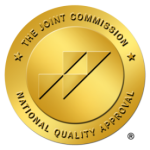Embarking on the journey of addiction recovery is a courageous step towards reclaiming a life of health and well-being. The road to recovery is a transformative process that unfolds through several distinct stages. Each stage brings its own challenges, triumphs, and opportunities for growth. Delve into the stages of addiction recovery, shedding light on what to expect and how to navigate the path to lasting healing.
Stage 1: Acknowledgment and Acceptance
Acknowledging the presence of addiction and accepting its reality is the pivotal starting point of the recovery journey. This initial stage requires a candid and introspective assessment of one’s behavior, choices, and the impact of substance use on various aspects of life. Listed below are the key components of acknowledgment and acceptance, the first stage of understanding addiction recovery.
Facing the Reality – Acknowledgment demands confronting the undeniable truth that addiction has taken hold. This can be a sobering and sometimes overwhelming realization. It involves acknowledging the negative consequences of substance use, whether they are physical, emotional, or social. This honest evaluation sets the foundation for embracing change.
Overcoming Denial – Denial often serves as a protective mechanism, shielding individuals from the harsh realities of addiction. Breaking through denial requires self-reflection and the courage to admit that substance use has spiraled into a problem. This can be a challenging process, but it is an essential step toward recovery.
Embracing Vulnerability – Acknowledgment involves vulnerability – acknowledging that one’s actions and choices have led to a situation that needs addressing. It takes strength to acknowledge vulnerability and to recognize that seeking help is a sign of courage, not weakness.
Reaching a Turning Point – For many, this stage represents a turning point in their lives. It’s the moment when the weight of addiction becomes too heavy to bear, and the desire for change becomes stronger than the pull of substances. This is the moment individuals decide to take back control and seek help.
Cultivating Self-Compassion – Acknowledgment requires self-compassion. It’s acknowledging that addiction is a disease that affects countless individuals, and it’s not a reflection of personal failure. Accepting this fact fosters a mindset of healing and encourages individuals to move forward without shame.
Opening the Door to Recovery – By acknowledging addiction, individuals open the door to a world of possibility and transformation. This stage prepares the ground for seeking help, receiving support, and working towards a life free from the constraints of addiction.
Stage 2: Seeking Help
Once the reality of addiction is acknowledged and accepted, the pivotal step of seeking help becomes the beacon of hope that guides individuals towards lasting recovery. In this stage, individuals understand that overcoming addiction is not a journey they need to navigate alone – there are professionals, resources, and treatment centers like Revive Recovery Centers, ready to offer a helping hand. Seeking help is often one of the hardest first steps to take for individuals suffering from addiction.
Embracing Vulnerability – Seeking help requires a willingness to be vulnerable, to admit that the battle against addiction cannot be won through sheer willpower. It’s recognizing that seeking assistance is a strength, not a weakness, and that the journey to recovery is far more achievable with the guidance of experienced professionals.
Researching Treatment Options – Individuals in this stage often begin researching treatment options available to them. This might involve exploring various rehab centers, outpatient programs, therapy types, and specialized services. Revive Recovery Centers in Mesa, AZ, offers a range of evidence-based treatment programs tailored to individuals’ unique needs. It is important to research different programs to understand what they offer and how they can help you overcome addiction. Not every program is going to be the right fit and that is okay.
Reaching Out for Support – Reaching out for support is a pivotal moment in seeking help. Whether it’s talking to a trusted friend, family member, or a medical professional, this step marks the transition from acknowledging the problem internally to sharing it with others. Support is a crucial component on the road to recovery. Finding a trusted support system can help make the tough days a little easier knowing you are not alone in your journey to recovery.
The Role of Revive Recovery Centers in Mesa, AZ – Revive Recovery Centers in Mesa, AZ, stands as a beacon of hope for those seeking help in overcoming addiction. With a dedicated team of experienced professionals, a supportive environment, and evidence-based treatment programs, Revive Recovery Centers is committed to guiding individuals through their journey to recovery. From comprehensive assessments to personalized treatment plans, Revive Recovery Centers offers a holistic approach that addresses physical, emotional, and psychological aspects of addiction.
Creating a Personalized Treatment Plan – One of the most powerful aspects of seeking help from a reputable center like Revive Recovery Centers is the creation of a personalized treatment plan. Every individual’s journey is unique, and a customized plan ensures that the chosen therapies and interventions are tailored to address specific needs and challenges.
Taking the First Step – Seeking help is not just about finding a treatment center – it’s about taking that crucial first step towards reclaiming one’s life. It’s acknowledging that there’s a brighter future ahead, and with the right support, it’s within reach.
Stage 3: Detoxification and Stabilization
After acknowledging the presence of addiction and seeking help, the next crucial stage on the path to recovery is detoxification and stabilization. This stage involves addressing the physical aspects of addiction, breaking the body’s dependence on substances, and laying the groundwork for subsequent phases of treatment. Detoxification is a critical step that sets the stage for deeper healing and psychological growth. Detoxification is physically and emotionally taxing but a necessary stage in the recovery process, nonetheless.
Understanding the Importance of Detoxification – Detoxification, commonly known as detox, is the process of allowing the body to rid itself of the toxic substances that have built up due to addiction. The goal is to achieve a stable state where the body is no longer physically dependent on the substance. Detoxification is often the first step in recovery, as it prepares individuals for the therapeutic interventions that follow.
Medical Supervision and Safety – Detoxification is not a one-size-fits-all process. The withdrawal symptoms and potential complications vary based on the substance of abuse and the individual’s overall health. This is why detox should always be conducted under the supervision of medical professionals, ensuring the safety and well-being of the individual undergoing the process.
Physical and Emotional Challenges – The detoxification process can be physically and emotionally challenging. Withdrawal symptoms can range from mild discomfort to severe symptoms that require medical intervention. Emotional challenges might include anxiety, depression, irritability, and a strong craving for the substance. Trained medical staff at reputable treatment centers, such as Revive Recovery Centers, are equipped to manage these challenges effectively.
Holistic Approach to Detoxification – At facilities like Revive Recovery Centers, the detox process often incorporates a holistic approach. This means that physical health is addressed alongside emotional well-being. Nutritional support, hydration, and relaxation techniques are often utilized to ease physical symptoms while simultaneously nurturing the mind.
Transitioning to Further Treatment – Detoxification is not a standalone treatment for addiction. It is a critical stepping stone that prepares individuals for the subsequent stages of rehabilitation and therapy. Detoxification creates a stable foundation that allows individuals to engage more effectively in the psychological and emotional work of recovery.
Stage 4: Rehabilitation and Treatment
After detoxification and stabilization, the journey of addiction recovery enters a transformative phase: rehabilitation and treatment. This stage involves delving deep into the psychological and emotional aspects of addiction, understanding its underlying causes, and acquiring the skills and tools necessary for lasting recovery. Rehabilitation is where individuals learn to break the patterns of addiction, develop healthier coping mechanisms, and build a solid foundation for a sober life.
Therapeutic Interventions – Rehabilitation encompasses a variety of evidence-based therapeutic interventions that address the root causes of addiction. Therapies such as cognitive-behavioral therapy (CBT), dialectical behavior therapy (DBT), and motivational interviewing help individuals recognize negative thought patterns, understand triggers, and develop effective strategies for managing cravings.
Group Therapy – Group therapy plays a crucial role in rehabilitation. It provides a supportive and empathetic environment where individuals can share their experiences, learn from one another, and receive encouragement. Group therapy fosters a sense of community, reduces feelings of isolation, and promotes a deeper understanding of addiction’s impact.
Individual Counseling – Individual counseling allows individuals to work one-on-one with therapists to address their specific challenges, traumas, and underlying psychological issues. This personalized approach helps individuals gain insights into their thought processes, behaviors, and emotional triggers, paving the way for self-discovery and healing.
Holistic Healing – Holistic therapies like art therapy, mindfulness, yoga, and meditation are often integrated into the rehabilitation process. These approaches address the individual as a whole – mind, body, and spirit – fostering a sense of balance and promoting overall well-being. Holistic therapies are often a reprieve from the intensity of individual and group therapies. It is important to incorporate various types of therapy and healing methods in the recovery process.
Developing Coping Strategies – A significant aspect of rehabilitation is teaching individuals healthy coping strategies to replace substance use. Through therapy, individuals learn how to manage stress, handle triggers, and deal with difficult emotions without turning to addictive substances.
Relapse Prevention – Rehabilitation equips individuals with the tools and strategies necessary to prevent relapse. Individuals learn to recognize warning signs, implement effective relapse prevention techniques, and create a comprehensive aftercare plan to support their ongoing sobriety.
Stage 5: Maintenance and Long-Term Sobriety
As individuals progress through detoxification, stabilization, rehabilitation, and treatment, they reach a critical stage: maintenance and long-term sobriety. This stage is about embracing the changes made during earlier phases and applying them to real-life situations. It’s a time of continued growth, self-discovery, and the ongoing commitment to maintaining the progress achieved.
Transitioning to Everyday Life – Transitioning from a controlled treatment environment to everyday life can be a challenge. During this stage, individuals learn to apply the coping strategies, tools, and insights gained in treatment to real-world situations. This might involve managing triggers, navigating social situations, and dealing with stressors in healthier ways.
Continued Therapy and Support – While the intensity of treatment may decrease, the importance of continued therapy and support remains high. Regular therapy sessions help individuals address ongoing challenges, reinforce positive behaviors, and maintain accountability.
Support Groups – Participating in support groups, such as 12-step programs or other recovery-focused groups, offers a sense of community and a space to share experiences. Support groups provide ongoing encouragement, accountability, and a reminder that individuals are not alone in their journey.
Creating an Aftercare Plan – An aftercare plan is a crucial tool for maintaining sobriety beyond the treatment phase. It outlines strategies for handling potential triggers, ways to prevent relapse, and resources for ongoing support. A well-crafted aftercare plan takes into account the individual’s unique circumstances and needs.
Rebuilding Relationships – Long-term sobriety often involves rebuilding relationships that may have been strained due to addiction. It requires open communication, honesty, and a commitment to making amends when necessary.
Pursuing Personal Growth – Long-term sobriety is not just about avoiding substances; it’s about pursuing personal growth and well-being. Individuals in this stage continue to work on self-improvement, setting goals, and embracing new experiences that contribute to a fulfilling life.
Celebrating Milestones – As individuals progress in their recovery journey, celebrating milestones becomes an important practice. Whether it’s marking days, months, or years of sobriety, these celebrations serve as reminders of progress and motivation to keep moving forward.
Revive Recovery Centers’ Commitment to Long-Term Sobriety – Revive Recovery Centers in Mesa, AZ, recognizes that long-term sobriety is a journey that extends well beyond treatment. Our holistic approach includes comprehensive aftercare programs that provide ongoing support, therapy, and resources to help individuals maintain their progress and navigate the challenges of everyday life.
Stage 6: Growth and Renewal
As individuals progress through detoxification, rehabilitation, and the stages of maintaining sobriety, they enter a phase of profound growth and renewal. Stage 6 represents a reawakening – a time to fully embrace the transformation that recovery has brought and to channel newfound energy into rebuilding, self-discovery, and creating a life of purpose and fulfillment.
Rediscovering Passions – During this stage, individuals often reconnect with activities, hobbies, and interests that may have been neglected during their addiction. Rediscovering passions helps individuals find joy, purpose, and a healthy outlet for their energy.
Setting New Goals – With a clear mind and a renewed sense of purpose, individuals in this stage are ready to set new goals for themselves. These goals can range from personal achievements to professional aspirations, each contributing to a sense of accomplishment and progress.
Strengthening Relationships – Growth and renewal often involve repairing and strengthening relationships. Improved communication skills, emotional maturity, and a commitment to healthier interactions can lead to more meaningful connections with loved ones.
Contributing to Others – Many individuals in long-term recovery find a sense of fulfillment in giving back to their communities. Volunteering, mentoring, or sharing their recovery journey can be a way to inspire and support others who are still on their own paths to healing.
Managing Challenges – While growth and renewal are transformative, challenges are an inevitable part of life. However, individuals who have gone through the recovery journey are equipped with coping strategies and a strong support network to navigate life’s ups and downs with resilience.
Embracing a New Identity – Stage 6 often involves a shift in identity – from an individual defined by addiction to one defined by recovery, growth, and personal values. This shift allows individuals to align their actions with their true selves.
Finding Meaning and Purpose – As individuals grow and renew, they often seek deeper meaning and purpose in their lives. This might involve exploring spirituality, embracing mindfulness practices, or simply finding fulfillment in the everyday moments.
Celebrating Progress – Celebrating milestones – both big and small – becomes a regular practice in this stage. Each achievement, no matter how minor, serves as a reminder of the progress made and the endless potential for continued growth.
Understanding the Stages of Addiction Recovery
Understanding the stages of addiction recovery provides a roadmap for individuals seeking to overcome the challenges of addiction. Each stage is interconnected, representing a unique opportunity for personal growth and transformation. While the path to recovery is not without its obstacles, it offers the promise of renewed hope, restored relationships, and a future filled with possibilities. Remember, seeking help is the first step towards embracing a life free from the grip of addiction, and with dedication and support, recovery is possible.






